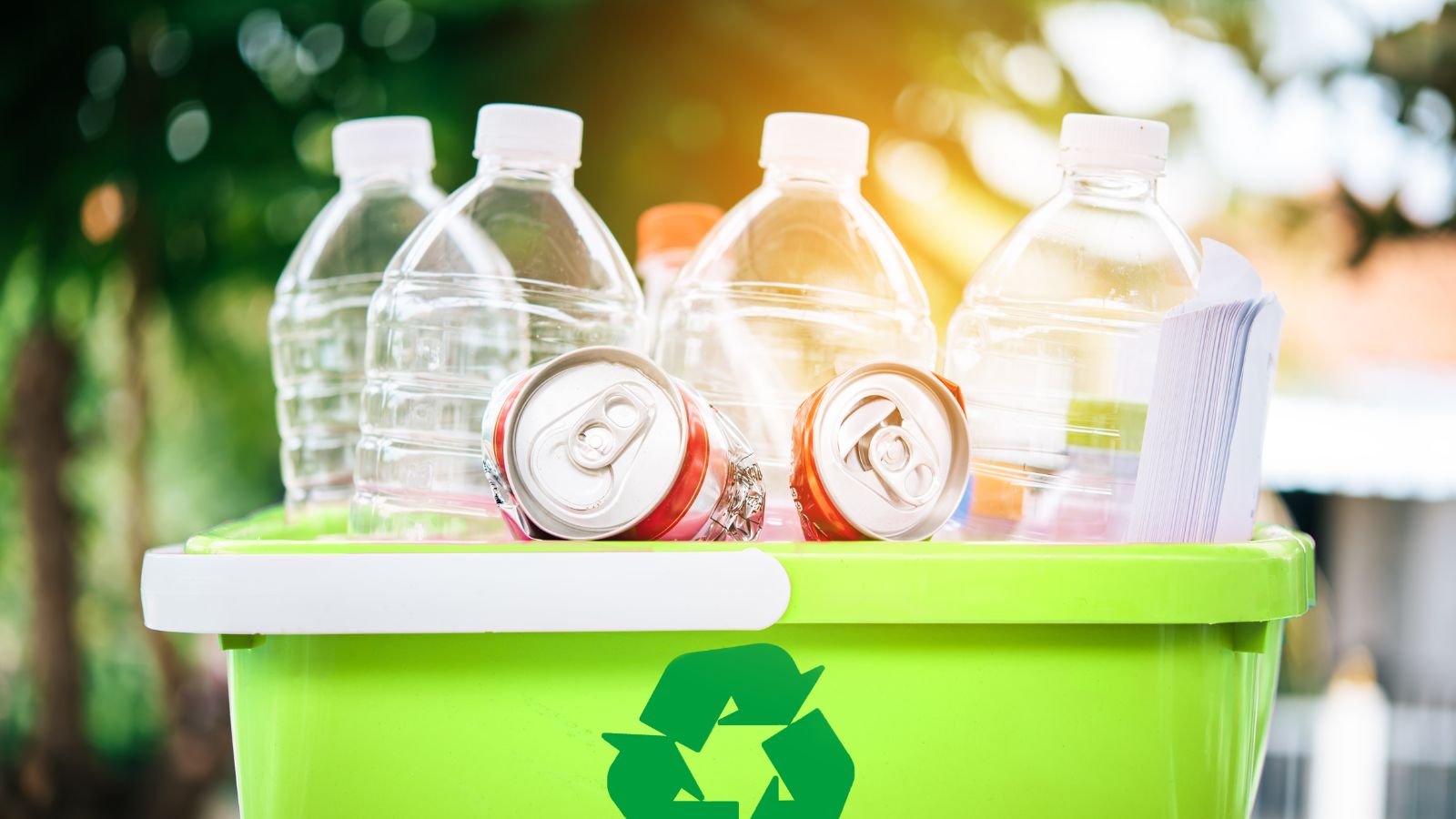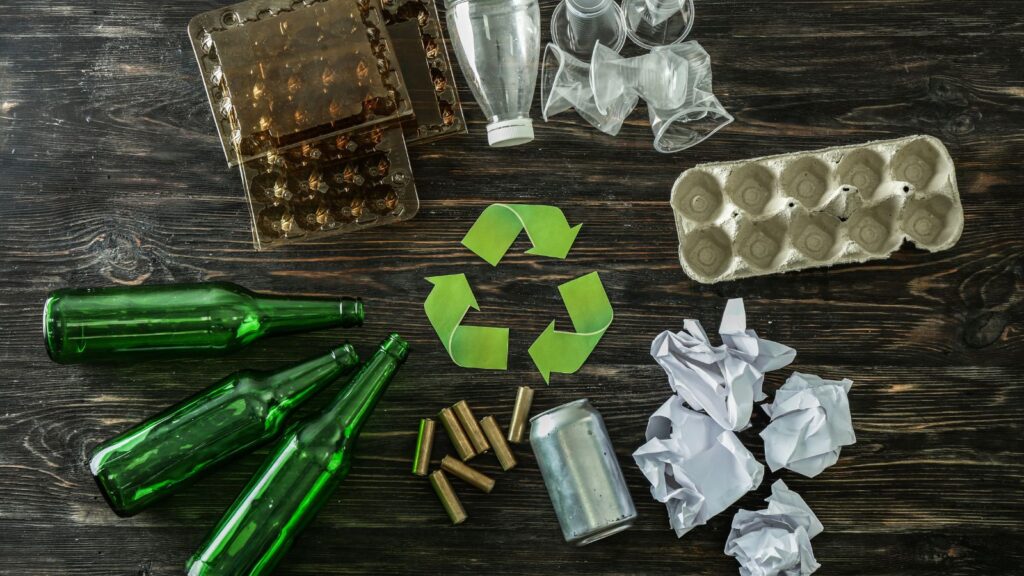Recycling is one of the simplest and most effective ways to reduce waste, conserve energy, and protect the environment. By making small changes in your home, you can significantly cut down on the amount of material sent to landfills.
Today’s homebuyers are also more eco-conscious than ever. In fact, many real estate professionals highlight built-in recycling systems and sustainable living features as a selling point. By making recycling a household priority, you not only help the planet, but you may also boost your home’s appeal and value.
Here are the top items you should recycle at home.
- Paper and Cardboard
Paper products are some of the easiest and most common items to recycle. This includes:
- Newspapers and magazines
- Office paper
- Cereal boxes
- Cardboard shipping boxes
Be sure to flatten cardboard boxes to save space in your recycling bin. Recycling paper helps conserve trees, reduce landfill waste, and lower greenhouse gas emissions associated with new paper production.
- Plastic Bottles and Containers
Plastics are everywhere—water bottles, detergent containers, and food packaging are just a few examples. While not all plastics are recyclable, most communities accept items labeled with recycling codes #1 (PET) and #2 (HDPE).
Tip: Always rinse containers to remove food residue or liquids before recycling. Clean plastic is more likely to be accepted and reused. By limiting single-use plastics and recycling what you can, you help protect oceans, wildlife, and natural ecosystems.
- Glass Bottles and Jars
Glass is 100% recyclable and can be reused indefinitely without losing quality. Items such as beverage bottles, pickle jars, and sauce containers are widely accepted in curbside recycling programs.
Remove lids, rinse containers, and place them in your bin. Recycling glass saves energy because producing new glass from raw materials requires far more heat and resources.

- Metals: Aluminum and Steel
Common recyclable metals include soda cans, soup cans, and even aluminum foil. Recycling metals saves significant energy; just one recycled aluminum can provides enough energy to power a television for several hours.
By recycling metal products, you help reduce the environmental impact of mining and conserve valuable natural resources.
- Electronics and Batteries
Old electronics—like cell phones, laptops, and tablets—should never go in the trash. Many communities offer e-waste recycling programs to safely dispose of electronics and batteries.
Recycling electronics prevents harmful chemicals from entering the environment and allows for the recovery of valuable materials like copper, silver, and gold. Check for local drop-off programs for electronics, batteries, and lightbulbs.
Final Thoughts
Recycling at home doesn’t take much effort, but the benefits are enormous. By recycling paper, plastics, glass, metals, and electronics, you help reduce waste, save energy, and preserve resources for future generations.
Incorporating a recycling system into your daily routine not only makes your home more eco-friendly—it may also add value, as today’s buyers increasingly seek sustainable features.
By recycling the right materials, you can keep your home clean, protect the environment, and contribute to a greener future.

